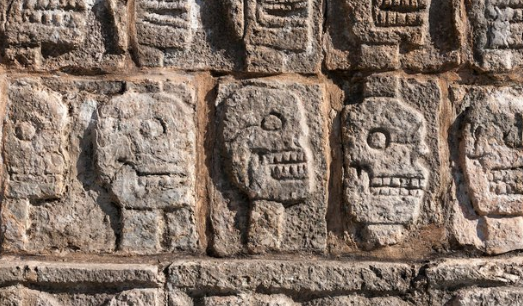In a recent study published in the journal Nature, scientists conducted a genetic analysis of remains from a mass burial site in Chichén Itzá, Mexico, a site notorious for its historical human sacrifices during the Mayan civilization. The study found that all the identified victims were male, including two pairs of twins, which aligns with the significant role twins often play in Mayan and broader Mesoamerican mythology.
Researchers analyzing DNA at ancient Mayan city of Chichén Itzá, a site for human sacrifices, found that young boys, including twins, were buried in a mass grave there. https://t.co/FHBiZWRlGh
— The Washington Post (@washingtonpost) June 17, 2024
This research has been praised as a breakthrough, particularly for its insights into the ritual practices associated with the Mayan sacred texts, like the Popol Vuh. This text narrates the sacrifice of a pair of twins following their defeat in a mythical ballgame, suggesting a ritualistic context for the sacrifices at Chichén Itzá. Rodrigo Barquera, the lead author, emphasized that these findings highlight a cultural perspective where death was not necessarily seen as negative but as part of a broader cosmological belief system.
Despite the dark nature of these findings, various respected institutions and media outlets, such as The New York Times, CBS, National Geographic, and Smithsonian Magazine, have celebrated this study. They present a narrative that seeks not to condemn these ancient practices but to understand them within their historical and cultural context. This approach reflects a broader trend in academic and cultural institutions towards cultural relativism, where historical practices are evaluated based on their own cultural norms rather than modern ethical standards.
Shocking results about those who were sacrificed by the Mayan people… DNA analysis reveals the incident in the Mexican Yucatan Peninsula with human sacrifices, where hundreds of bones were extracted from temples, from a sacred pit, and other underground caves. pic.twitter.com/73bzc3Q2qE
— @salman (@salman1422881) June 16, 2024
However, this perspective has sparked controversy, especially among critics who argue that it represents a double standard. These critics point out that the same institutions are quick to unequivocally condemn historical Western practices as evil, regardless of their cultural context. They see a contradiction in the willingness to excuse or rationalize child sacrifice by indigenous peoples while harshly judging similar or lesser evils in Western history.
The debate raises important questions about the limits of cultural relativism and the criteria we use to judge historical practices. While it is valuable to understand the cultural logic that underpinned practices like human sacrifice, critics argue that this should not amount to justifying or excusing such acts. They contend that certain human values, such as the protection of children, should be upheld as universal, transcending cultural and historical boundaries.
So that there is no confusion or misunderstanding; So that no cultural relativism may ever again subvert and deny the undeniable fact that women’s rights are human rights; I join my voice to the voices of all who demand that #GenderApartheid be made a crime against humanity.… pic.twitter.com/1bGmkjHMWa
— Ladan Boroumand (@LadiKhanom) June 18, 2024
As this debate continues, it highlights the ongoing challenges in balancing respect for cultural diversity with the defense of universal human rights. It also underscores the complex role that cultural narratives play in shaping our understanding of history and morality.
This discussion is particularly relevant today, as it not only affects how we interpret the past but also how we address contemporary issues of cultural identity, historical interpretation, and ethical standards.
Key Points:
i. Recent genetic analysis of a mass burial site at Chichén Itzá, noted for Mayan human sacrifices, has sparked debate among academics and media.
ii. The study identified that victims were primarily male and many were young, including twins, challenging prior beliefs that mainly females were sacrificed.
iii. Researchers suggest these sacrifices were culturally significant and aligned with Mayan beliefs, as depicted in the sacred text “Popol Vuh.”
iv. Critics argue that defending such practices on the grounds of cultural relativism is problematic, especially when similar actions would be condemned in Western contexts.
v. The discussion highlights a broader academic and cultural debate on how to ethically interpret and judge historical practices that are in stark contrast to modern values.
Charles William III – Reprinted with permission of Whatfinger News



